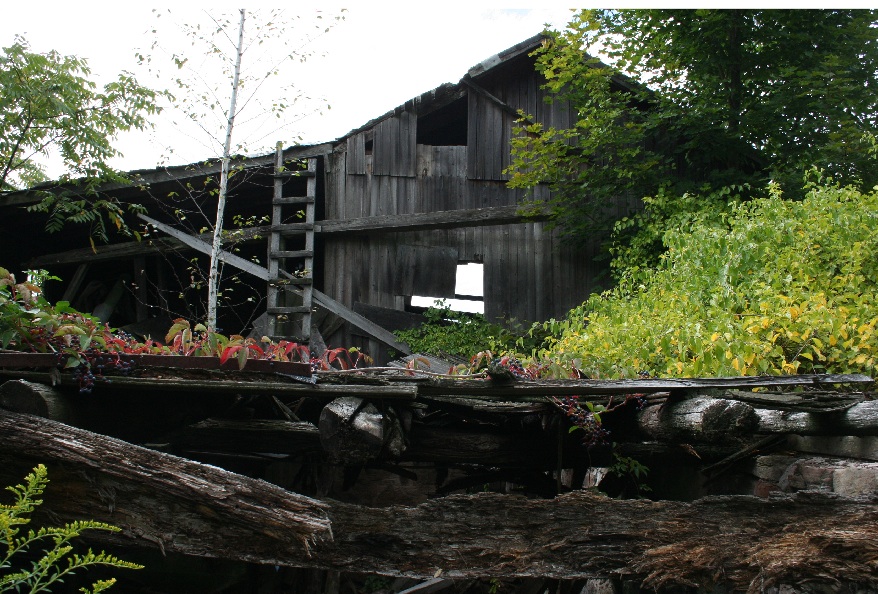Dairy Hay Barn Is Gone, Not Forgotten
“Barns are working buildings; they are the largest tool on a farm. Like any tool, their shape and size reflects they way in which they are used. . . a barn's shape, size and attributes reflect the job it was intended to do.
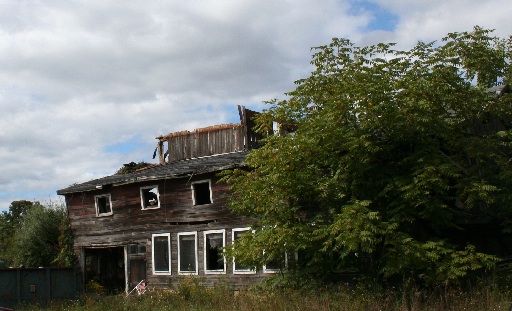 When looking at the view of the former milking parlor, I think of all the times that milking parlor door has been opened and closed. The cows at their stanchions inside munching fragrant hay and the ever-present barn cats are long gone at this former dairy, but the bullpen and farmhouse remain.
When looking at the view of the former milking parlor, I think of all the times that milking parlor door has been opened and closed. The cows at their stanchions inside munching fragrant hay and the ever-present barn cats are long gone at this former dairy, but the bullpen and farmhouse remain.
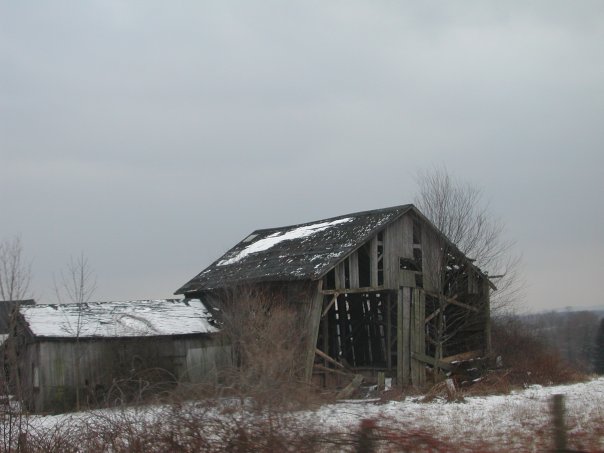
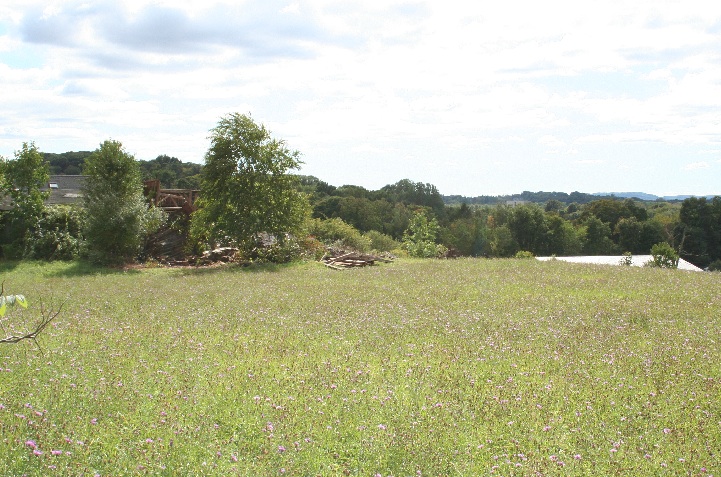 The hay barn for the former Shoneck dairy farm shown above was standing in winter, gone by late summer 2010. The view (shown above) is similar, looking south and west from Preston Avenue in Meriden, Connecticut; but the hay barn is now gone.
The hay barn for the former Shoneck dairy farm shown above was standing in winter, gone by late summer 2010. The view (shown above) is similar, looking south and west from Preston Avenue in Meriden, Connecticut; but the hay barn is now gone.
“Barns are disappearing from the Connecticut landscape. In some cases, it takes years for a barn to slowly decay. In others, a barn may be standing one day and gone the next, razed to make way for new construction. With each barn that is lost another piece of the state's rich agricultural history disappears,” according to details listed the Connecticut Barn survey, a project of the Connecticut Trust for Historic Preservation (CTHP).
 The CTHP barn project site is a rich and image-heavy resource for anyone who loves country, architecture and visual beauty. For information or other historic barns initiative programs, contact Todd Levine at barns@cttrust.org. For other information call (203) 562-6312. The National Trust for Historic Preservation's Barn Again! program was created and is managed in partnership with Successful Farming magazine for help with technical issues and workshops.
The CTHP barn project site is a rich and image-heavy resource for anyone who loves country, architecture and visual beauty. For information or other historic barns initiative programs, contact Todd Levine at barns@cttrust.org. For other information call (203) 562-6312. The National Trust for Historic Preservation's Barn Again! program was created and is managed in partnership with Successful Farming magazine for help with technical issues and workshops.
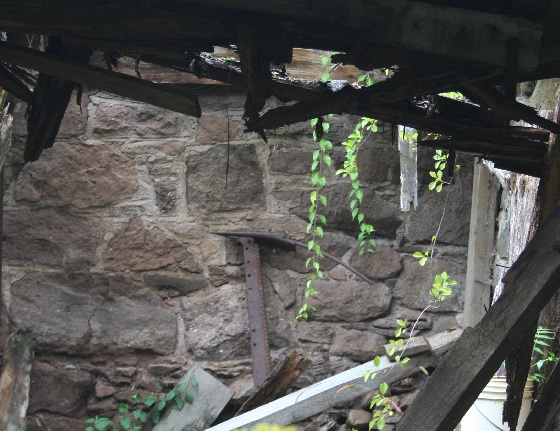
“In a few places, concerned groups have begun to inventory existing barns with the hope of at least documenting the buildings before they are gone. But in many parts of the state the sense of loss is based on anecdotal evidence. We simply don't know where the state's barns are, what they look like, and how they were used. We don't know what we are losing.”

